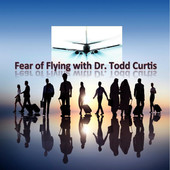Dr. Curtis was interviewed by CBS Radio News about the August 2010 detention of two passengers in Amsterdam on suspicion of being involved in some kind of terror related event. The passengers were later released because they had done nothing wrong.
On August 30th, 2010, two men, Ahmed Mohamed Nasser al-Soofi and Hezam al-Murisi, who were both on their way to Yemen from the US, were arrested in Amsterdam after they had arrived on a flight from Chicago. They were arrested because they were suspected to be part of some kind of terror related activity, perhaps a dry run for an attempted bombing of an aircraft.
Al-Soofi had raised suspicion earlier in the day prior to his flight from Birmingham, Alabama to Chicago. After being chosen for additional screening, authorities found that he was carrying $7,000 in cash, and in his checked luggage were a cell phone taped to a small bottle, multiple cell phones and watches taped together, a knife, and a box cutter. Al-Soofi had violated no laws or regulations, so he was allowed to continue.
Later in Chicago, he had changed his flight, and his checked bags ended up going on a different flight. Coincidentally, Hezam al-Murisi, who also changed his flight to to one carrying Al-Soofi, also had his bags going on a different flight. US authorities asked Dutch authorities to detain the men, and they were both arrested after arriving in Amsterdam.
The CBS interview covered several subjects including whether the behavior of these passengers should have aroused suspicions. At the time of the interview, early reports suggested that they were traveling together. In fact, while the two were on the same flight out of Chicago, they did not know each other and were traveling independently, with only Al-Soofi starting his trip in Birmingham.
The Dutch authorities soon released both men, and dropped all charges. In short, although what the two men did during their trip looked unusual or even suspicious, they had done nothing wrong, and had broken no law or violated any regulation. The lesson to take away from this episode is that the US authorities, including TSA and Homeland Security, may be inclined to take all kinds of precautionary actions, including detaining passengers, if they suspect that someone is attempting to bring harm to an airplane flight.
Should passengers change their behavior to keep from being hassled? According to Dr. Curtis, that is a personal decision best left to individual passengers. In his opinion, you're free to act as suspicious as you want, just keep in mind that the price of freedom is an increased chance of being hassled or even detained.
Listen to the interview (10:19)
Related AirSafeNews.com Articles
AirSafeNews.com article on the attempted bombing
Description of four key US terrorist and TSA security databases
BBC interview with AirSafeNews.com's Dr. Todd Curtis
Subscribe to:
Post Comments (Atom)










No comments:
Post a Comment